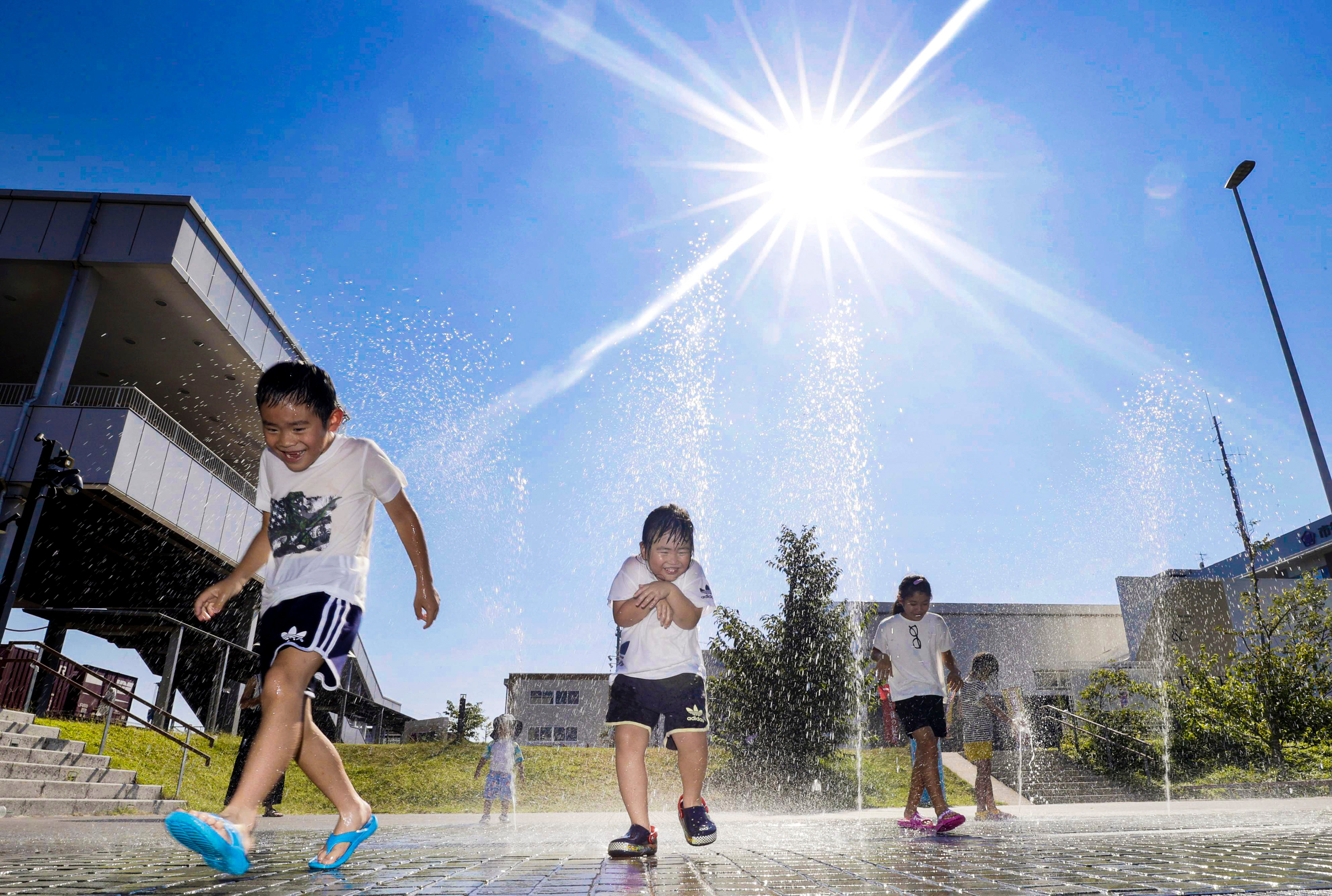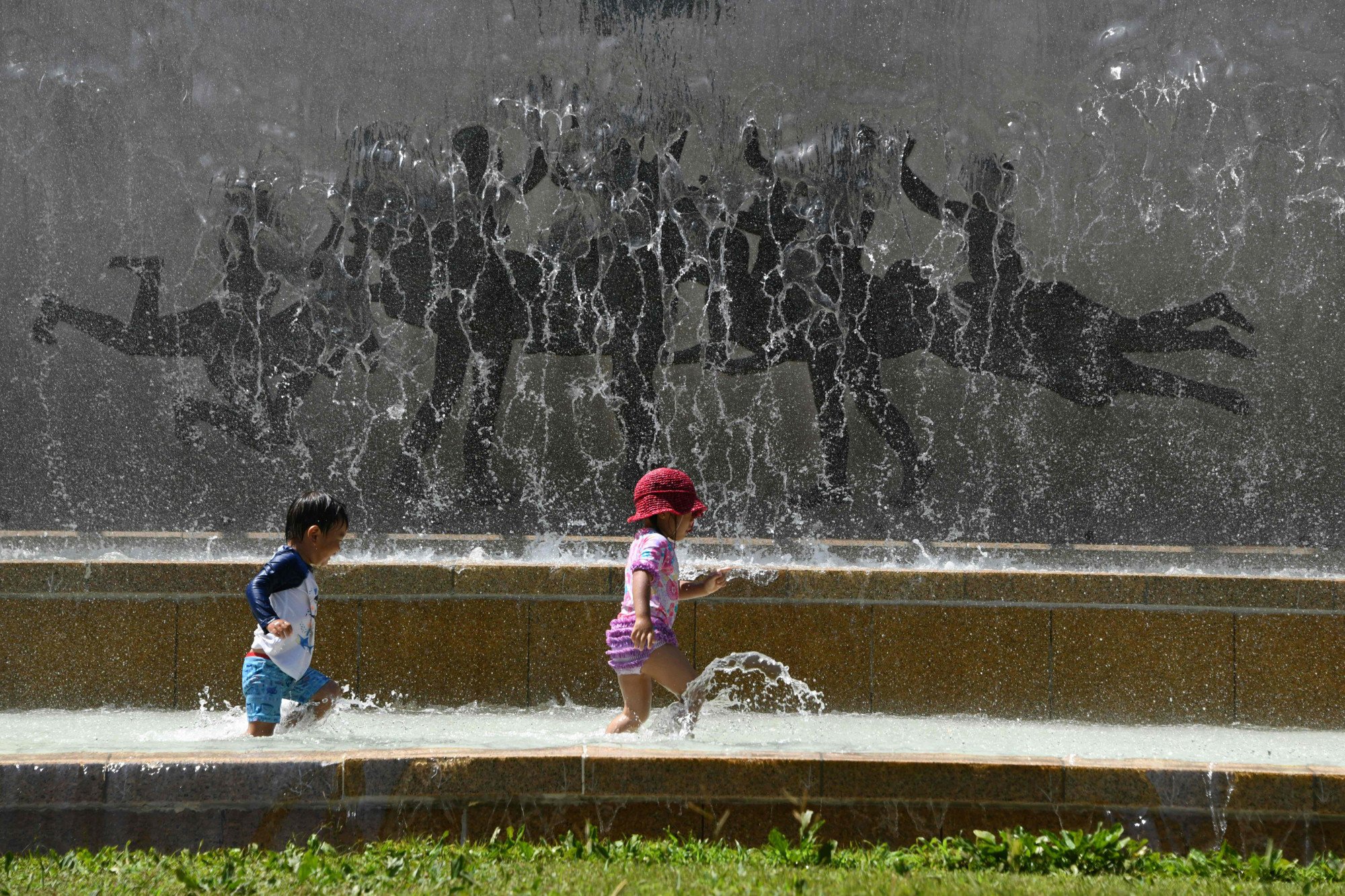Japan’s scorching summers could halt children’s outdoor sports by 2060, experts say
A study warns that youth sports may become unsafe due to heat unless greenhouse gases are reduced. Japan has seen 100 heat-related child deaths in the past 20 years

By 2060, summer temperatures in Japan could become so dangerously high that outdoor sports for children may need to be suspended entirely during parts of July and August – except for the cooler Hokkaido island – according to climate researchers.
A study by Japan’s National Institute for Environmental Studies (NIES) and Waseda University warned that without a significant reduction in greenhouse gas emissions, many areas of the country will become unsuitable for youth sports in the late afternoon – when school club activities like baseball, athletics and football typically take place.
The findings, published in the Environmental Health journal on March 10, highlight what researchers say is a looming crisis for children’s health, as Japan’s intense summer heat merges with a deeply ingrained sporting culture, creating conditions that could pose serious risks.
The issue is of particular concern to Takahiro Oyama, a researcher at the NIES Centre for Climate Change Adaptation and lead author of the report.

“When I was at school I did track and field sports through the summer and I experienced heat illness several times,” he told This Week in Asia. “At that time, around 20 years ago, our teachers did not realise that it was such a problem, although that has changed now and people are more aware.”
There have been around 100 deaths attributed to heat illnesses among children in the last 20 years, Oyama said, adding that many others suffer from issues like heatstroke, dehydration, and exhaustion due to high temperatures and humidity.
Oyama’s team has developed a projection model that includes various weather and environmental factors, such as humidity, temperature, and wet-bulb globe temperature, which evaluates heat stress by taking into account elements like wind and solar radiation.
Japan is unique in the world in that sports clubs’ activities run through the summer monthsTakahiro Oyama, climate researcher
Using data from 842 cities across Japan and dating back 12 years, the model predicted the effects of rising temperatures on children taking part in sport over two 20-year periods: 2030-2050 and 2060-2080.
In the most pessimistic global warming scenarios, the report determined that by 2060, outdoor sports should be avoided throughout Japan, except in Hokkaido, between 3pm and 6pm during July and August.
“Japan is unique in the world in that sports clubs’ activities run through the summer months,” Oyama said.
The Japan Meteorological Agency is warning that this summer is expected to be hotter than average, continuing a trend of rising temperatures across the country.
Their summer forecast starting in June predicts a 70 per cent chance of higher-than-average temperatures in central Japan, 60 per cent in northern and southern Honshu, Kyushu, and most of Hokkaido. For northern Hokkaido and the Okinawa archipelago, the probability is 50 per cent.
The agency has also started issuing heatstroke alerts on its website.
Of the 153 weather stations across Japan, 80 reported unprecedented high temperatures last summer, and 120 confirmed record-high autumn heat. In March, the agency stated that spring temperatures were documented significantly earlier than usual, along with extended periods of sunshine and above-average sea surface temperatures.
In a joint report with the science ministry, it added that while recent summer heatwaves labelled as “once-in-a-century” anomalies, extreme summer weather will become the norm if greenhouse gas emissions are not curtailed and global temperatures keep rising.
The report warns that if significant changes are not made, summer temperatures in Japan could be 5.1 degrees Celsius hotter by the end of the century, with urban areas experiencing increases of up to 6.2 degrees.
In light of those alarming figures, Oyama’s paper advocates for implementing stricter safety measures, such as rescheduling afternoon sports events to the early morning, opting for indoor activities, closely monitoring weather reports, and shifting tournament dates away from the hottest times of the year.
“Many days in the summer in 2060 will be very hot, but I do want to stress that temperatures that exceed safe levels will not occur every day of every week,” he said. “Not all sport should be prohibited every day. What we need to do is take better note of weather forecast and alter schedules to avoid the worst.”